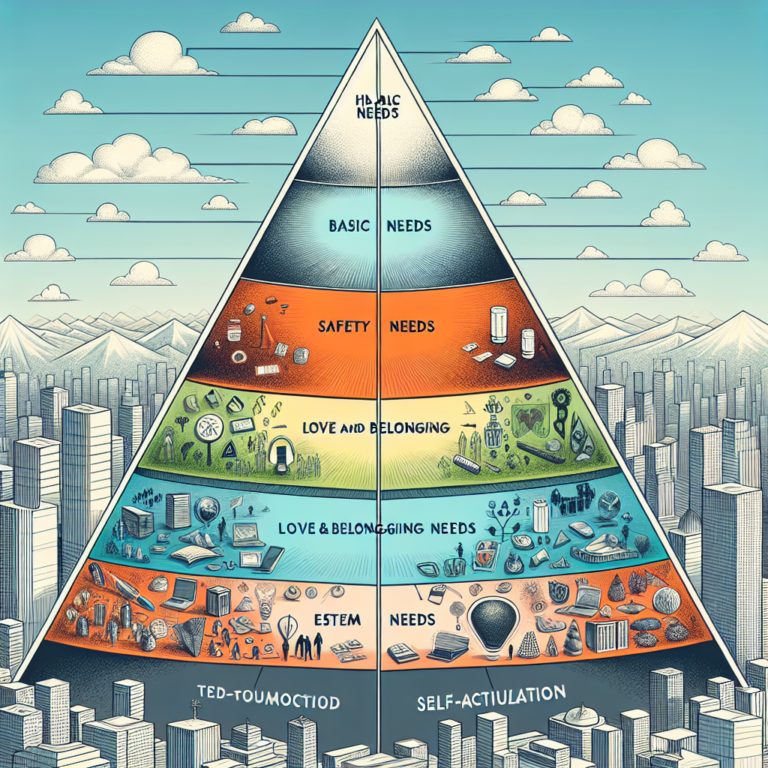
Finding Your Focus: Essential Time Management Strategies to Boost Academic Performance
Introduction
In today’s fast-paced academic environment, students are often overwhelmed by endless assignments, exams, and extracurricular activities. With such a heavy workload, finding your focus can feel like finding a needle in a haystack. However, mastering the art of time management is crucial for academic success and personal well-being. If you’re feeling adrift among the sea of responsibilities, fret not—this article arms you with time management strategies designed to optimize your focus and elevate your academic performance.
The Importance of Time Management in Academics
Time management is not just about keeping a busy schedule; it’s about making your time work for you. Effective time management can lead to reduced stress, better grades, and a more balanced life. Here’s why it should matter to you:
Increased Productivity
When you hone your time management skills, you become more efficient in completing tasks. This means you’ll find yourself spending less time on homework while achieving better results.
Better Academic Performance
Students who manage their time effectively tend to achieve higher grades. Studies demonstrate that organized students often score better on tests and projects.
Enhanced Personal Satisfaction
There’s nothing quite like the feeling of ticked-off items on your to-do list. Accomplishing tasks not only leads to better academic outcomes but also provides a sense of personal fulfillment.
Understanding Your Current Time Management Style
To kickstart your time management journey, it’s essential to assess your existing style. Here’s a quick self-evaluation tool to help you identify whether you are a planner, a procrastinator, or somewhere in between.
| Style | Characteristics | Example Behaviors |
|---|---|---|
| Planner | Organized, proactive | Uses planners, sets deadlines |
| Procrastinator | Reactive, often anxious | Delays work until the last minute |
| Balanced | Flexibly organized, adaptable | Plans but can adjust as needed |
Analysis: Knowing your style helps tailor strategies that will work best for you.
Strategy 1: Set Clear Goals
SMART Goals Framework
One of the first steps to improve time management is to set clear goals. The SMART framework—Specific, Measurable, Achievable, Relevant, Time-bound—can guide you in this process.
Example: Instead of saying, “I want to study more,” you might say, “I will study for my mathematics exam for 1 hour every Wednesday and Friday from 4 PM to 5 PM.”
Why It Works: Making your goals specific and time-bound provides a clearer path to follow, which aligns perfectly with finding your focus.
Strategy 2: Prioritize Tasks
The Eisenhower Matrix
Prioritization is a cornerstone of effective time management. The Eisenhower Matrix categorizes tasks into four quadrants:
- Urgent and Important (Do first)
- Important but Not Urgent (Schedule)
- Urgent but Not Important (Delegate)
- Neither Urgent nor Important (Eliminate)
Example:
| Quadrant | Task |
|---|---|
| Urgent and Important | Complete the project due tomorrow |
| Important but Not Urgent | Study for the midterm next month |
| Urgent but Not Important | Reply to an email |
| Neither Urgent nor Important | Organize your desk |
Analysis: Using the Eisenhower Matrix to classify tasks can empower you to take action in a disciplined manner that resonates with finding your focus.
Strategy 3: Employ Time Blocking
What is Time Blocking?
Time blocking involves dividing your day into segments dedicated to different tasks. This structured method prevents distractions and keeps your focus intact.
| Time Block | Activity |
|---|---|
| 8:00 AM – 9:00 AM | Morning Review |
| 9:00 AM – 11:00 AM | Classwork |
| 11:00 AM – 12:00 PM | Break |
| 12:00 PM – 1:00 PM | Studying for Exams |
| 1:00 PM – 2:00 PM | Lunch |
| 2:00 PM – 5:00 PM | Group Project Work |
Why It Works: By scheduling your day, you effectively create a ‘timetable’ that enhances focus and organizes tasks.
Strategy 4: Leverage Technology
Apps for Enhanced Focus
Today’s technology offers an array of applications designed to aid in time management:
- Trello: Use it for task management by creating boards for projects.
- Focus@Will: A music service designed to improve concentration levels.
- Forest: Gamifying focus by growing virtual trees for distraction-free minutes.
Case Study: A Student’s Journey Using Forest App
A college student, Jane, struggled with distractions during her study sessions. After implementing the Forest app, she could visualize her focused time, resulting in improved grades and a better understanding of her coursework.
Analysis: Technology can serve as a tool, enhancing your ability to find focus and effectively manage time.
Strategy 5: Maintain Work-Life Balance
The Importance of Breaks
A common pitfall among students is neglecting self-care. To truly find your focus, you must balance work with downtime.
- Pomodoro Technique: Study intensely for 25 minutes, then take a 5-minute break. This technique fosters focused sessions interspersed with recovery time, reducing burnout.
Example: If you study for four Pomodoros, that gives you a total of 1 hour and 20 minutes of focused study time with short breaks.
Conclusion
Finding your focus through effective time management is an ongoing journey that requires practice, commitment, and a willingness to adapt. By adopting strategies like setting SMART goals, prioritizing tasks using the Eisenhower Matrix, implementing time blocking, leveraging technology, and maintaining a work-life balance, you can significantly improve your academic performance.
Actionable Takeaway
Take a moment to write down your top three goals for the semester. Next, categorize the associated tasks using the Eisenhower Matrix and develop a time-blocked schedule. Start small and gradually refine your approach.
With determination and the right strategies, you can transform your academic experience and find the focus you’ve been looking for.
FAQs
What is the best time management strategy for students?
- Different strategies work for different individuals; however, time blocking and using SMART goals are widely effective.
How can I avoid procrastination?
- Break tasks into smaller, manageable pieces, and set deadlines to create a sense of urgency.
Is it necessary to take breaks?
- Absolutely! Taking breaks enhances productivity and prevents burnout.
How do I prioritize my tasks effectively?
- Use the Eisenhower Matrix to help categorize tasks by urgency and importance.
- What apps can help me with time management?
- Popular apps include Trello for organization, Focus@Will for concentration, and Forest for minimizing distractions.
By embracing these time management strategies, you can enhance your academic performance and find your focus with ease. Your future self will thank you!

















